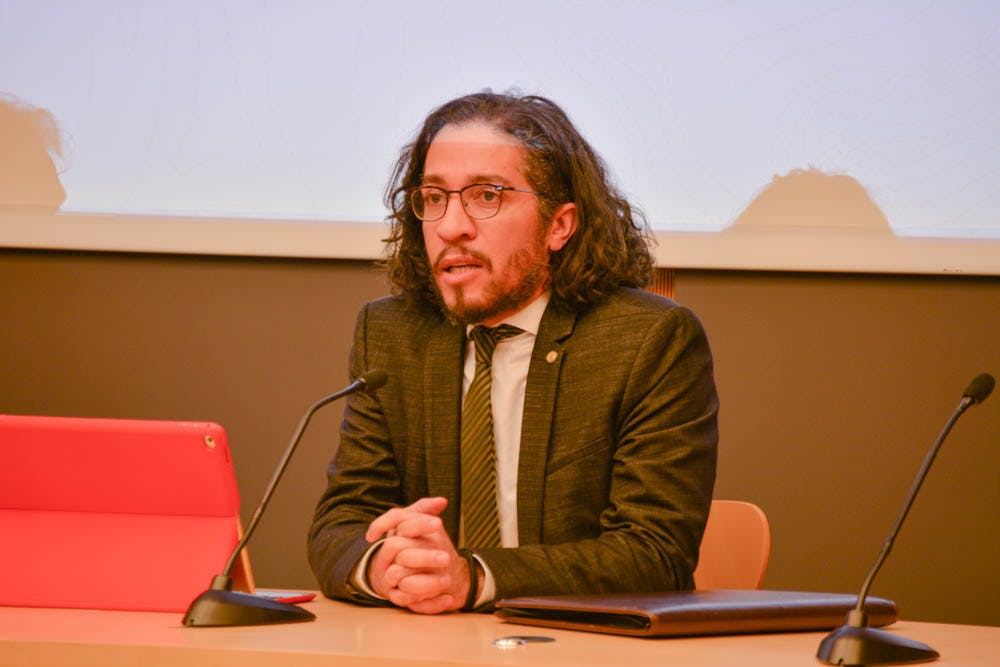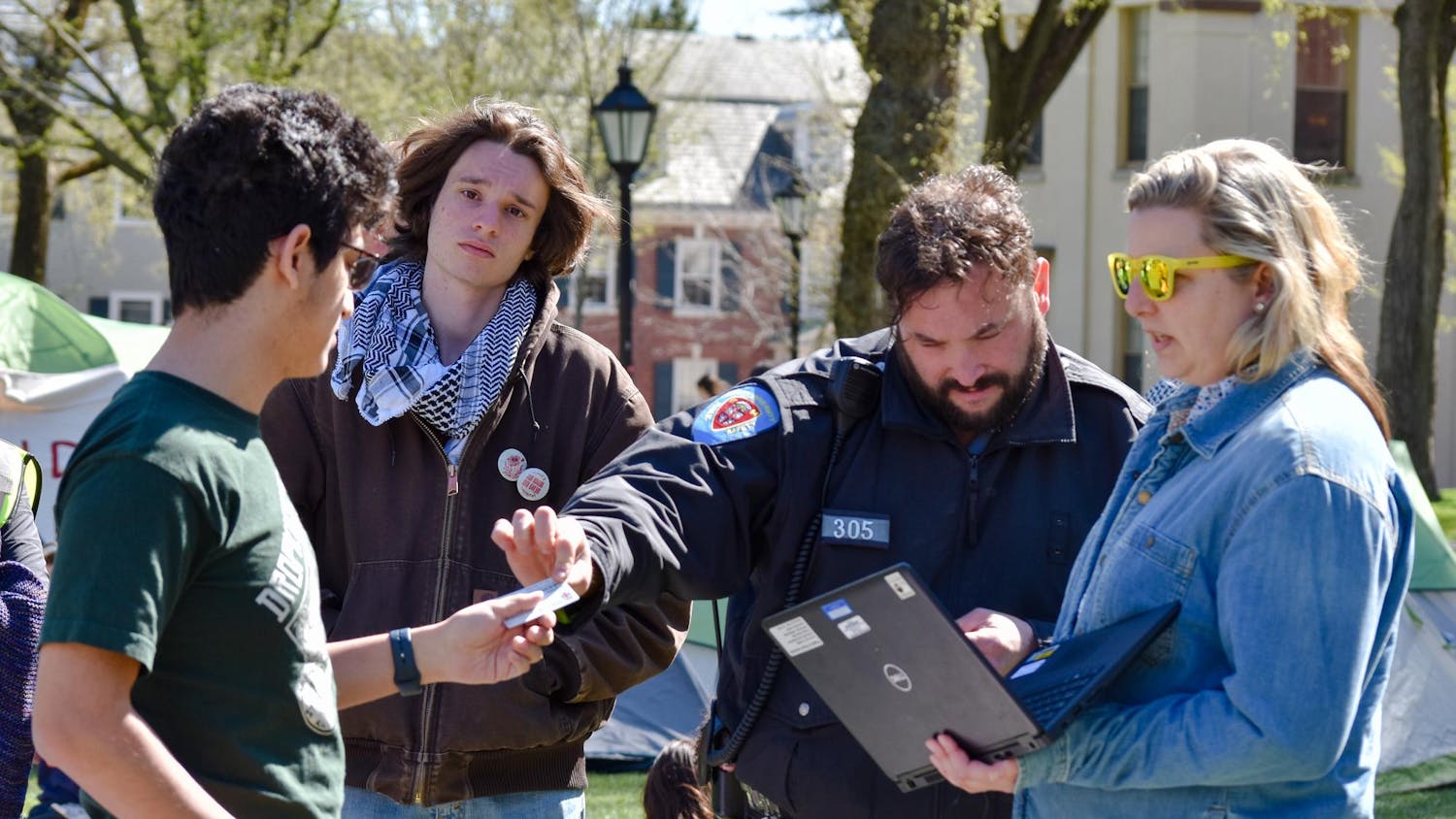Jean Wyllys, Brazil’s first openly gay congressperson, spoke Monday night at the Watson Institute for International and Public Affairs about the process of democracy, detailing four scenarios of democracy and applying them to the current political climate in Brazil in order to address the country’s deep-rooted challenges.
Wyllys, a member of the Party of Socialism and Freedom, was elected to Congress in 2010 and was reelected in 2014 with the seventh-highest number of votes among the congressional representatives from Rio de Janeiro. He is internationally recognized for his work on behalf of LGBTQ rights, women’s rights and racial justice. Wyllys’ talk was sponsored by the Brazil Initiative so that he could share a rare perspective with members of the Brown community, said James Green, professor of modern Latin American history and Portuguese and Brazilian studies and director of the Brazil Initiative.
Wyllys began by outlining four scenarios of democracy, including democracy in agony, democracy in tension, democracy in mobilization and democracy in transformation.
Democracy in agony is the scenario of a “hijacked democracy” that generates fear and a “sense of defeat” among its citizens, Wyllys said. For example, various crime groups control the elections and force citizens to vote for certain people in such a democracy, Wyllys said. A “private militia” that has “promised to keep the people secure” now controls access to many parts of Brazilians’ lives, such as transportation, Wyllys added.
Democracy in tension is “most common compared to the others,” Wyllys said. In Brazil, there is a “permanent tension” between the wealthy and the average person, he said. Though there is the pretense of a democratic process, democracy is controlled “by the last name,” he said, referring to the familial lineage of power in Brazil.
Democracy in mobilization is marked by people articulating positions through networks, Wyllys said, adding that it is seen in instances where people are speaking out against traditional power. Today, this is particularly true given how we communicate through technological channels such as cell phones and social media, he said.
The most positive scenario is democracy in transformation, Wyllys said. This is “high-intensity democracy” characterized by representation and participation of people and not by a “hereditary process,” he said. Ultimately, this scenario brings new leadership and reformation, Wyllys added.
Wyllys talked at length about the current political atmosphere in Brazil, especially what led to “the blow of 2016” to its democracy, referring to the impeachment of President Dilma Rousseff for which Wyllys argued there was no evidence of crime.
Wyllys also detailed recent history in Brazil, highlighting certain contingencies that led to the situation of the present day, such as systemic corruption, economic forces and the dominance of the elite.
Under President Luiz Inácio Lula da Silva, who fought for “integration of classes” and represented “subterraneous groups,” there was more distribution of wealth because elites were willing to cooperate so long as their standard of living remained unaffected, Wyllys said. But when the global financial crisis hit in 2008, the “elite passed laws in selfish ways,” he said, leading to resentment against Rousseff when she refused to implement an agenda that conformed to the wishes of the wealthy.
There is a cruel irony to this change, Wyllys said, because the general population voted Rousseff into office twice, yet the right portrayed Rousseff and her administration as corrupt. The efforts to paint Rousseff as corrupt fueled a “cultural misogyny,” Wyllys said, adding that the people shifted toward a “culture that wasn’t going to tolerate a woman running this country.” The right “began to talk about impeachment before she even took over her second government,” he added. Some of the elites whose businesses were negatively impacted by Rousseff’s government began to actively manipulate parliament to initiate the impeachment process, Wyllys said.
The effort to undermine Rousseff’s legitimacy was further perpetuated on social media with support from people on the right who financed groups that began to “shoot lies,” Wyllys said. They “wanted to protect their own privileges” and overthrow Rousseff, he added.
Brazil is not a democratic regime right now, Wyllys said, adding that the democracy of tension and agony is what Brazilians live in.
Wyllys attributed part of this situation to the “anti-intellectual movement” that is occurring all over the world, he said, adding that we have to be critical of the pedagogy used by those in power.
“When darkness increases, we have the responsibility to turn on the light and keep the light on,” Wyllys said.
Nathaniel Pettit ’20 and Camila Ruiz ’18 both said they appreciated the space given to a person of color who is gay and can present a multifaceted perspective on the political conditions in Brazil.





